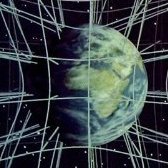Leaderboard
Popular Content
Showing content with the highest reputation on 01/20/22 in all areas
-
I've posted this before, but I still believe that the future of humans away from the Earth is in space stations, not planets or moons. Once you get them up to a certain size, you can rotate them and create 1g of artificial gravity, you have virtually limitless free energy beaming at you, and you can land and take off using practically no fuel whatsoever. You can mine the moons for raw materials, you can use the cheap solar electricity to manufacture everything, you have free cold storage, and space is well and truly limitless. Here on Earth, we are running out of space with seven billion humans. Up there, there is room for seven billion billion humans, without stepping on each others toes. That is by living on space stations. I would imagine that the first stage in colonising space would be a Moon mining operation, with a space station orbiting the Moon as permanent living quarters. I don't think Mars or the outer planets would become any use for hundreds of years. The first step would be to establish a settlement that was self-sustaining without help from Earth. And that's a formidable step, but should happen within a couple of hundred years.1 point
-
https://phys.org/news/2022-01-life-earth.html Addressing one of the most profoundly unanswered questions in biology, a Rutgers-led team has discovered the structures of proteins that may be responsible for the origins of life in the primordial soup of ancient Earth. The study appears in the journal Science Advances. The researchers explored how primitive life may have originated on our planet from simple, non-living materials. They asked what properties define life as we know it and concluded that anything alive would have needed to collect and use energy, from sources such as the Sun or hydrothermal vents. In molecular terms, this would mean that the ability to shuffle electrons was paramount to life. Since the best elements for electron transfer are metals (think standard electrical wires) and most biological activities are carried out by proteins, the researchers decided to explore the combination of the two—that is, proteins that bind metals. more at link.............. the paper: https://www.science.org/doi/10.1126/sciadv.abj3984 Quantifying structural relationships of metal-binding sites suggests origins of biological electron transfer Abstract Biological redox reactions drive planetary biogeochemical cycles. Using a novel, structure-guided sequence analysis of proteins, we explored the patterns of evolution of enzymes responsible for these reactions. Our analysis reveals that the folds that bind transition metal–containing ligands have similar structural geometry and amino acid sequences across the full diversity of proteins. Similarity across folds reflects the availability of key transition metals over geological time and strongly suggests that transition metal–ligand binding had a small number of common peptide origins. We observe that structures central to our similarity network come primarily from oxidoreductases, suggesting that ancestral peptides may have also facilitated electron transfer reactions. Last, our results reveal that the earliest biologically functional peptides were likely available before the assembly of fully functional protein domains over 3.8 billion years ago. Thus, life is a special, very complex form of motion of matter, but this form did not always exist, and it is not separated from inorganic nature by an impassable abyss; rather, it arose from inorganic nature as a new property in the process of evolution of the world. We must study the history of this evolution if we want to solve the problem of the origin of life. [A. I. Oparin (1)]1 point
-
Yes, but we've been through all that. Harry Potter didn't exist as J.K. Rowling. They are two different entities. J.K.Rowling exists. Harry Potter does not. Harry Potter came out of her head. That doesn't mean he existed as a person. The OP asks, was there a real Jesus of Nazereth. Not, were there real people that helped inspire the story. Every story is based on people that the author knew or heard of. If you use that as your yardstick, there was a real Odin, a real Hercules, a real Superman, a real Spiderman etc. etc.1 point
-
Let me try. As the universe expands it gets more vacuum. But it is the same vacuum, the vacuum does not dilute. Thus, the answer to the questions is, No.1 point
-
My pic said "Tonga Geological Services" on the right margin, which I figured was fairly self-explanatory. However, your reasonable comment did remind me that if someone looked at this in a few years and didn't see the margin credit, they might wonder what event they were seeing. The figure I heard for the force of the explosion was ten megatons, btw. As for PhD dissertations, I wouldn't be surprised if a grad student somewhere will write one using data collected from this eruption.1 point
-
At least give a CONDENSED version, so this thread doesn't EVAPORATE. Sorry.1 point
-
Same kind of shrimp as 3 posts above. Different anemone. Or rather the same kind of anemone populated by a different algae (?)1 point
-
If we took the data set of life when it first emerged, it would be impossible to predict it would evolve into a bipedal, oxygen breathing entity that could escape the planet; one data set does not a theory make. Let's not forget the topic title, and think about the possibility that an alien world would evovle differently. How often do engineers refer to nature to improve their machines? An F1 car has evolved to rely less and less on smelting metals and they still aren't the fastest on the planet...1 point
-
As with other forms of categorization it is obviously a bit arbitrary and at least theoretically based on genetic distance and/or fossil similarity. But obviously that is not trivial and fossils do not show linear progression. This article has a nice discussion https://doi.org/10.1098/rstb.2015.0237.1 point
-
Photosynthesis proteins as well as ATP-synthases arose a fair bit later. A common assumption is that substrate level phosphorylation was at the beginning. There are other hypotheses around which are based on how other reactions were potentially thermodynamic favourable, but i haven't looked at those for a while.1 point
-
By example: Who designed the designer? It’s turtles all the way down. Also, evolution isn’t about creation. It’s about change, so here again the ID-iots misapply their assault since instead they mean to attack abiogenesis with their dull rhetorical blades. This isn’t directed at you btw… just riffing on the paucity of merit and intellect so consistently found in deniers of evolution, perhaps the single best supported scientific theory ever devised to explain and model the world we’re part of.1 point
-
Evolution means change. There is no direction. Devolution is you again forcing a false label on to a natural process. With that said, it seems rather obvious to me that your mind is already made up and your mood recalcitrant and obstinate, that you’re not here to learn… and that’s a shame. Lots of intelligent, kind, high quality natural teachers here who are willing to assist in your own evolution of knowledge and understanding.1 point
-
1 point
-
That's the point of my other, evidence based speculation; you can't possibly know how this planet will evolve, much less an alien world. In your speculation it is assumed that advanced civilisations catagory has a limited membership, based on one data set; that's not reasonable speculation, that's belief in how special we are.1 point
-
Terrific!!! a link at last!!! Of course though it is just one, and I have given others just as reputable. from your link.....""There must be some commonality between the sender and receiver in order for communication to occur". And mathematics and descriptive geometry could be that commonality. from your link again....."The solution? Computer technology. Raybeck believes the common ground (which is essential for communication) may be as minimal as the ability to process information. Computers could provide a solution, if they can receive and generate complex messages in a human language and could be programmed to create a common language. Given their learning capabilities, computers should refine and improve the process over time." Didn'tthink of that, but hey! worth a try if all other means fail. thanks dimreeper.1 point
-
https://www.newswise.com/articles/difficulties-in-communicating-with-aliens1 point
-
I think it’s more complicated than even this - because in my opinion language is more than a simple mapping into the outside world. It is strongly contextual, and meaning isn’t inherent (as it would be in a mapping), but given only through its actual use by people. Thus, language is more than an abstract set of rules and maps - it’s a cultural and social convention, and as such it is fluid and permanently evolving. You cannot separate language from the context of its users. I’m pretty firmly with Wittgenstein’s philosophy of language in this regard. I’m not saying that comparative philology isn’t a worthwhile endeavour (it’s quite interesting!); only that there are inherent limitations to such a project. I don’t believe this is true. Consider the example I gave earlier of เกรงใจ in Thai - this is a very subtle social concept that is quite specific to Thai culture. It is a real ‘thing’ in the outside world (an aspect of culture), but there exists no adequate translation for this in English or any other European language. Even trying to explain this concept in all its subtleties requires an entire paragraph of text at least, and even then it isn’t guaranteed that the reader will understand. Whole guide books have been written about it! Another example of such a thing is the word fa’alavelave in Samoan, which roughly refers to a social obligation created by something that has happened in the extended family, and for which material resources need to be raised so as not to loose face in the community (it also means simply ‘trouble’ or ‘problem’). You can verbally understand the explanation, but you won’t understand what fa’alavelave truly means to a Samoan person, unless you have lived in Samoa (it took me a long time to fully understand all implications of this when I lived there). The concept simply does not exist outside its cultural context, so no other language has any way to adequately express it in all its subtlety.1 point
-
1 point
-
https://www.nasa.gov/feature/goddard/2017/how-hardy-is-webb-a-qa-about-the-toughness-of-nasa-s-webb-telescope We know Webb will get struck by micrometeoroids during its lifetime, and we have taken that into account in its design and construction. We sized Webb’s main mirror so that even after years of little impacts it will still have the reflective surface area and quality necessary to do the science. We even did tests on the ground that emulated micrometeoroid impacts to demonstrate what will happen to the mirrors in space. Similarly, part of the reason the sunshield has five layers is so it can tolerate more than the number of expected small holes, and even some tears, and still work as it should. Also, almost all of Webb’s sensitive components (besides the mirrors and sunshield) are protected behind “micrometeoroid armor.” When micrometeoroids do strike, most are so small that they totally disintegrate upon impact, even when they hit something thin like thermal blankets or a sunshield membrane. Critical wires and electronics are shielded behind even more robust metal “armor” or inside metal boxes1 point
-
When species are not native, we do try to take action like that. And I think you don't appreciate the complexity or scale of interactions. When you have thousands and thousands of variables all interconnected in a giant web, arbitrarily going through and changing some from their normal state will cause massive ripples throughout the system, potentially causing unforeseen harm to humans and nonhumans alike. Species have existed in Darwinian struggle since abiogenesis. Now it's our moral prerogative to change the entirety of how the ecosystem works? Regardless of the ethics of it (on which I completely disagree with you), if you don't see that it's impractical, implausible, and probably harmful, then I don't see much more productive discussion resulting from this.1 point
-
I mean, conservation isn't just some theoretical philosophy adopted by biologists. Yes, it often goes hand-in-hand with what a lot of people view as the ethical way to do things, but it has clearly tangible benefits for the environment and mankind. It's a forward-looking policy, concerned with doing as little damage to ecosystems as possible. Preventing trophic cascades, slowing down anthropogenic climactic change, preventing collapses of populations that serve as our food sources, stopping invasive species that will overrun environments, stopping the destruction of ecosystems that can theoretically yield new scientific advances (think medicines derived from aquatic compounds), etc. It's not just an issue of ethics, but one of pragmatism, too. It's also "easy" in that it's a policy largely concerned with keeping the status quo so there's minimal opportunity to accidentally completely ruin the environment. I've never heard of "antinatalism" before, but even if you think that's the most ethical thing to do, implementing it requires such high levels of human interference that I feel it would almost inevitably end terribly. I'm a vegetarian, so I have no lack of empathy for animals, but not only is it impossible to calculate all the variables needed to implement it and keeps ecosystems functioning, it's not within the realm of possibility, with the tools we have.1 point
-
Thanks - it’s facts I’m asking for not a statement that they exist. Please could you cite evidence that convinced you ‘nature’ can code.-1 points
-
As this topic was aimed at believers in creation, I would like to respond. Observations like the ones you cite are secondary observations built on the assumption of naturalism. I use that word because my disbelief of evolution extends further than the accepted limited definition of the term evolution. I have never read anything that accepts that it is all built on assumptions and attempts to address those assumptions without citing gaps in knowledge. Evolution requires the proactive engineering of new body parts including self replicating DNA instruction code containing new and novel information sequences. Where is the evidence for that? virus immunity is not creating any new structures or anatomical features, and so would never escape from being a virus, ever. I appreciate this is a science forum but I must take issue with Christian brothers believing in evolution. Happy to take offline.-2 points
-
When I read these posts regarding mutations I find it hard to believe that anyone thinks that mutations are the mechanism by which DNA coding for new anatomical structures is created. it goes against all coding principles, garbage in, garbage out.-2 points
-
I don’t think DNA has done anything to support Darwinism. The uses of DNA in criminology and parenthood would not extend to animals. This is because there is an in built assumption that humans are related. That is true and so it works. To apply the assumption to apes to prove Darwinism is using an assumption to prove itself. Design could still be the answer.-5 points









